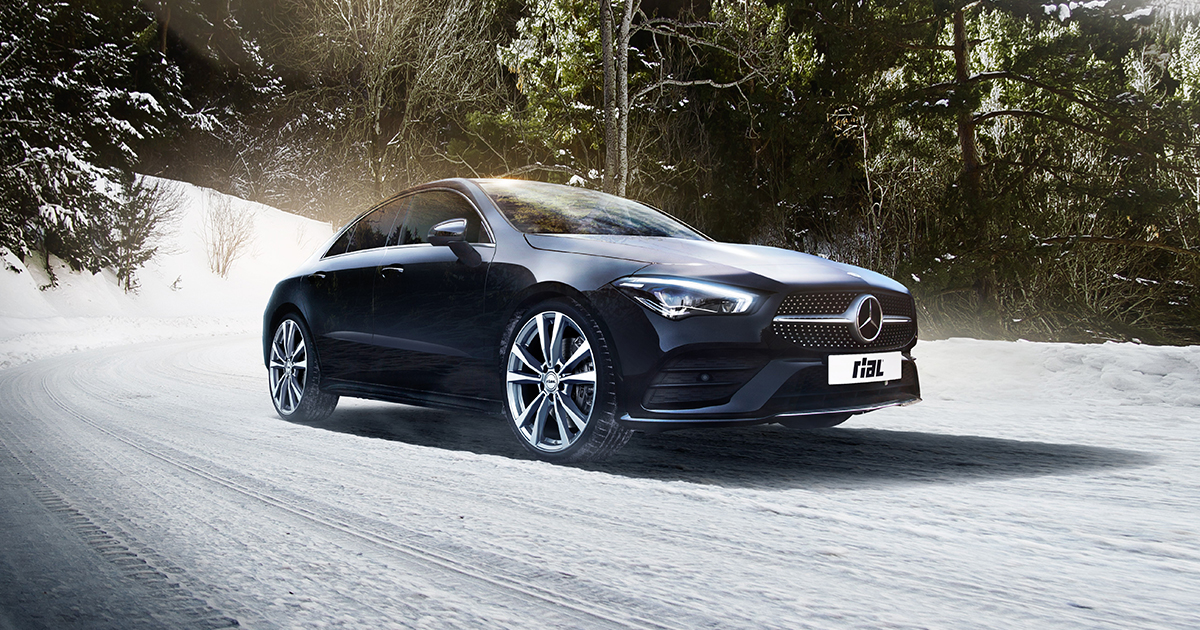
Winter? Compatible.
Can I drive on my alloy wheel rims even in winter when the streets are covered with slush, road salt and grit? Many owners of beautiful aluminum wheels ask themselves this question. The simple answer: yes. However, aluminum wheels need a little more attention than those made from steel – both when selecting the surface treatment and during maintenance.
High-quality, triple-varnished aluminum wheels are fully winter-proof and do not oxidize. The thickness of the three layers of varnish protects them well. Admittedly, polished aluminum wheels, whose surfaces are refined through mechanical surface processing and then coated with clear varnish, are somewhat more susceptible in winter than their non-polished counterparts. Nevertheless, as long as the clear varnish coating is not damaged, corrosion has no chance of attacking the beautiful wheel. Because the polished surface is only coated in clear varnish following the pretreatment, however, there is a risk of this layer being damaged by a stray rock, for example, thus setting the stage for corrosion.
The chrome-free pretreatment, which is identical in both versions, prevents corrosion from spreading further across the wheel should the protective layer actually be damaged. So whichever of the two surface types is used, proud owners of alloy wheels should apply suitable care products more often in winter than is necessary for steel wheels – but who wouldn’t be happy to do this to maintain the remarkable appearance?
Incidentally, the term “winter-proof” is not officially defined. The manufacturers use all their expertise when designing their models and test them in special labs. Based on the data gathered in this way, the manufacturers then determine which alloy wheel is placed on the market with the designation “winter-proof”. In the RIAL range, fans of visually pleasing alloy wheels can find many high-quality models that can withstand all the rigors of winter.


